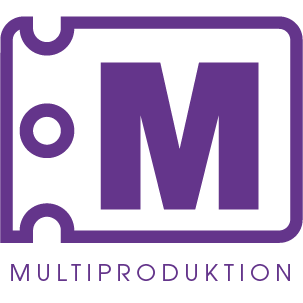AI Triangle: A Model for Effective Use of AI
In an era where artificial intelligence (AI) is rapidly changing how we work and run businesses, we present the AI Triangle - a simple yet powerful model for maximizing the benefits of AI in both personal and professional contexts.
What is the AI triangle?
The AI triangle is a conceptual model that illustrates how three key components work together to enable the effective use of AI:
Understanding AI
Domain knowledge
Complementary use
Let's explore each of these components and see how together they form the foundation for successful AI implementation.
1. Understanding AI: The Foundation for Realistic Expectations
A fundamental understanding of AI's capabilities and limitations is crucial. This means:
Insight into how AI algorithms work
Knowledge of what types of problems AI is best suited to solve
Awareness of potential risks and ethical considerations
With this understanding, you can:
Setting realistic goals for AI projects
Avoid common pitfalls
Implementing AI responsibly
2. Domain Knowledge: Your Expertise is Key
Your unique knowledge and experience in your specific field is invaluable when it comes to applying AI effectively. Domain knowledge helps you to:
Identify relevant problems that AI can solve
Interpret and contextualize AI-generated results
Make informed decisions based on a combination of AI insights and industry expertise
Your expertise ensures that AI is used to solve the right problems and that the results are interpreted correctly within the context of your business.
3. Complementary use: AI as augmentation
The most effective way to implement AI is to see it as a complement to human capabilities, not a replacement. Through complementary use, you can:
Automate routine or time-consuming tasks
Free up time for creative and strategic thinking
Improve decision-making by combining human intuition with AI-powered analysis
The AI triangle
The AI Triangle in Practice: An Example
Let's see how the AI triangle can be applied in a real-world situation:
Scenario: A company wants to improve its customer service using AI.
Understanding AI:
The team is training on chatbots and natural language processing (NLP).
They understand AI's ability to handle routine issues and its limitations with complex cases.
Domain knowledge:
The customer service team has deep insight into common customer questions and problem-solving processes.
They understand the company's products and services in detail.
Complementary use:
Implements an AI chatbot to handle simple questions and issues.
Uses AI to categorize and prioritize incoming cases.
Human agents focus on complex problems and emotionally demanding interactions.
Results:
Faster response times for routine questions
Increased customer satisfaction through more efficient case management
More engaged employees who can focus on value-creating interactions
Implement the AI triangle in your organization
To start using the AI Triangle in your business, follow these steps:
Invest in AI training: Ensure your team has a solid understanding of AI's capabilities and limitations.
Map your domain knowledge: Identify areas where your unique expertise can give AI solutions a competitive advantage.
Plan for complementary use: Explore how AI can amplify and complement your team's strengths.
Start with pilot projects: Start on a smaller scale to build experience and demonstrate value.
Evaluate and iterate: Regularly measure the impact of your AI initiatives and be prepared to adjust your approach.
Conclusion: Balance for success
The AI Triangle offers a structured approach to maximizing the value of AI in your organization. By balancing AI understanding, domain knowledge, and complementary uses, you create a solid foundation for effective use of AI.
Remember that successful AI implementation is an ongoing process. Be prepared to continually learn, adapt, and evolve with the technology. With the AI triangle as your guide, you can navigate this exciting new era with confidence and vision.
How do you plan to use the AI triangle in your organization? What opportunities do you see for AI to complement and enhance your team's strengths? Feel free to share your thoughts and experiences!


